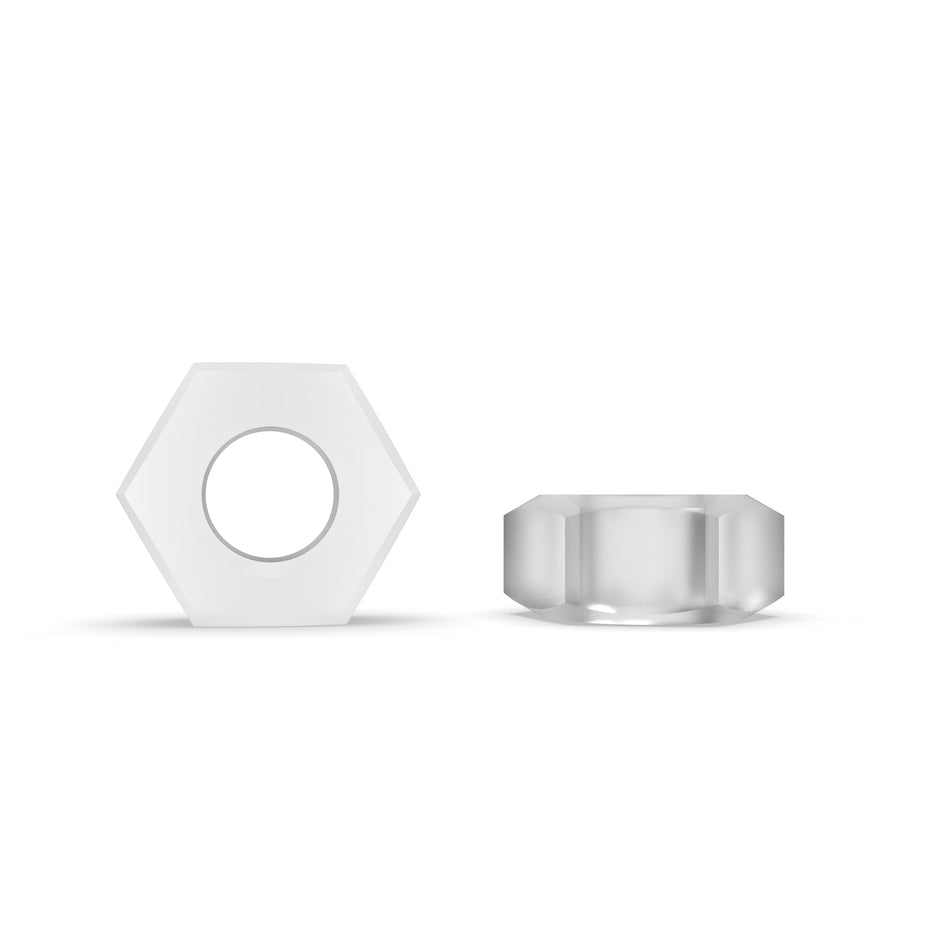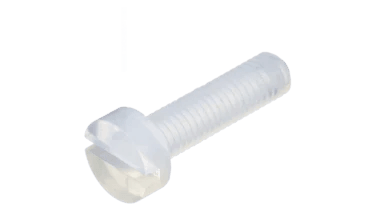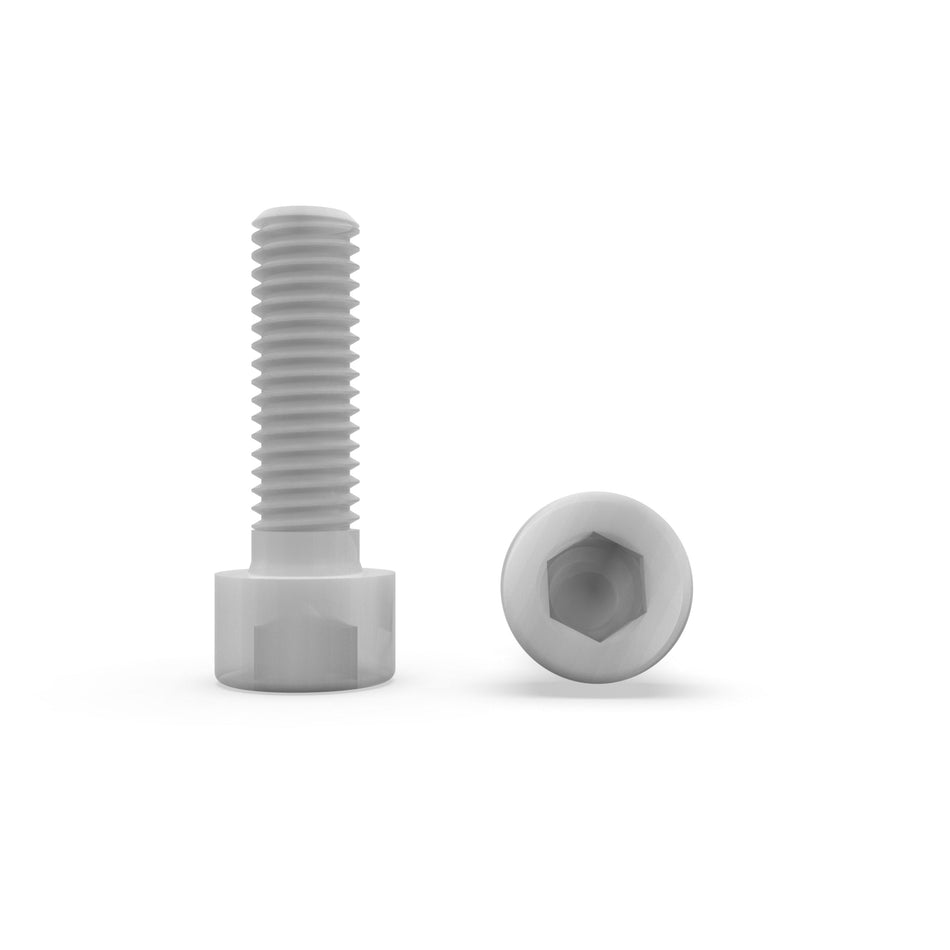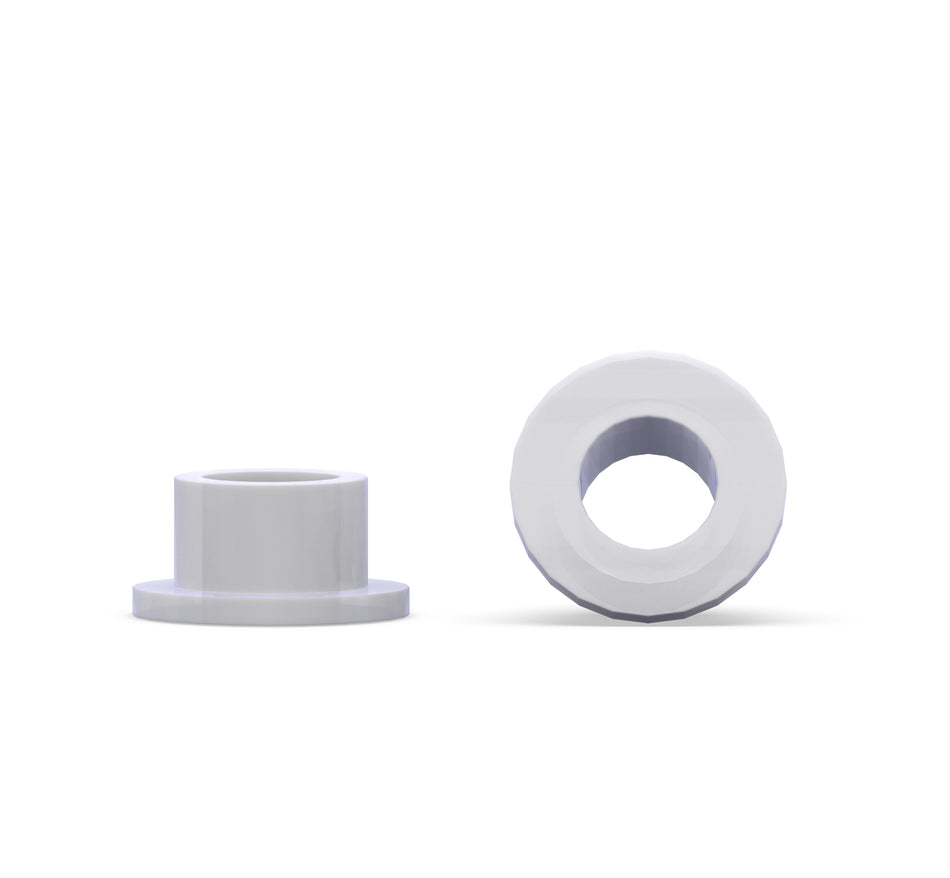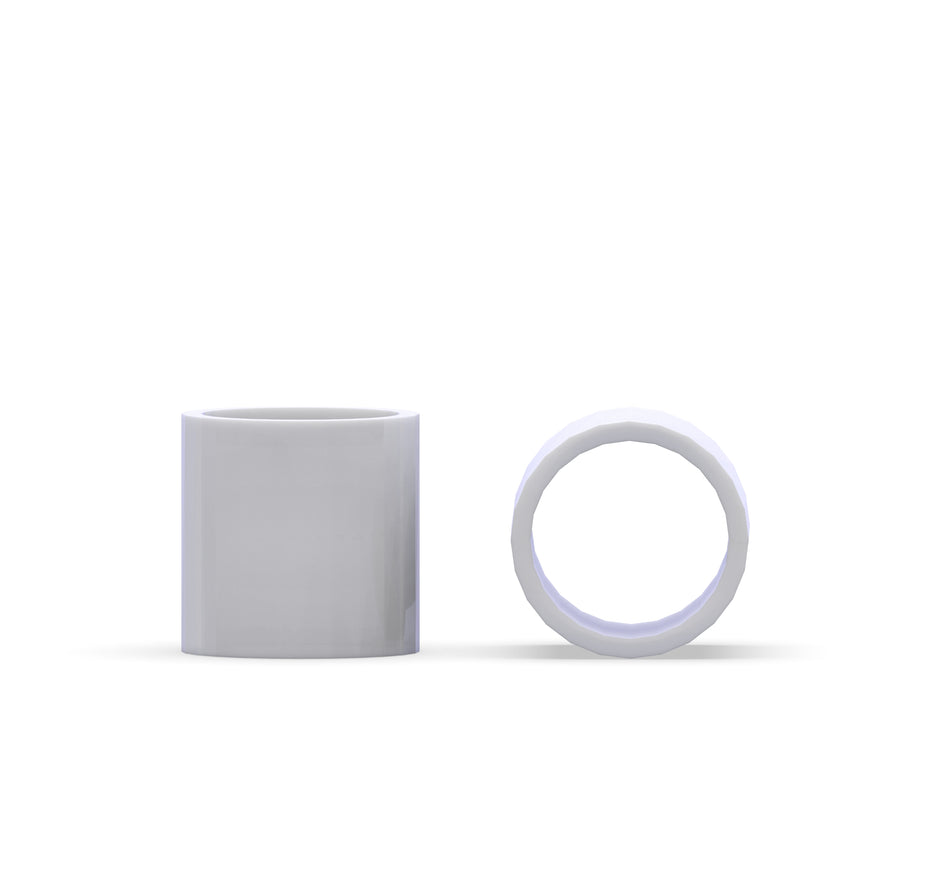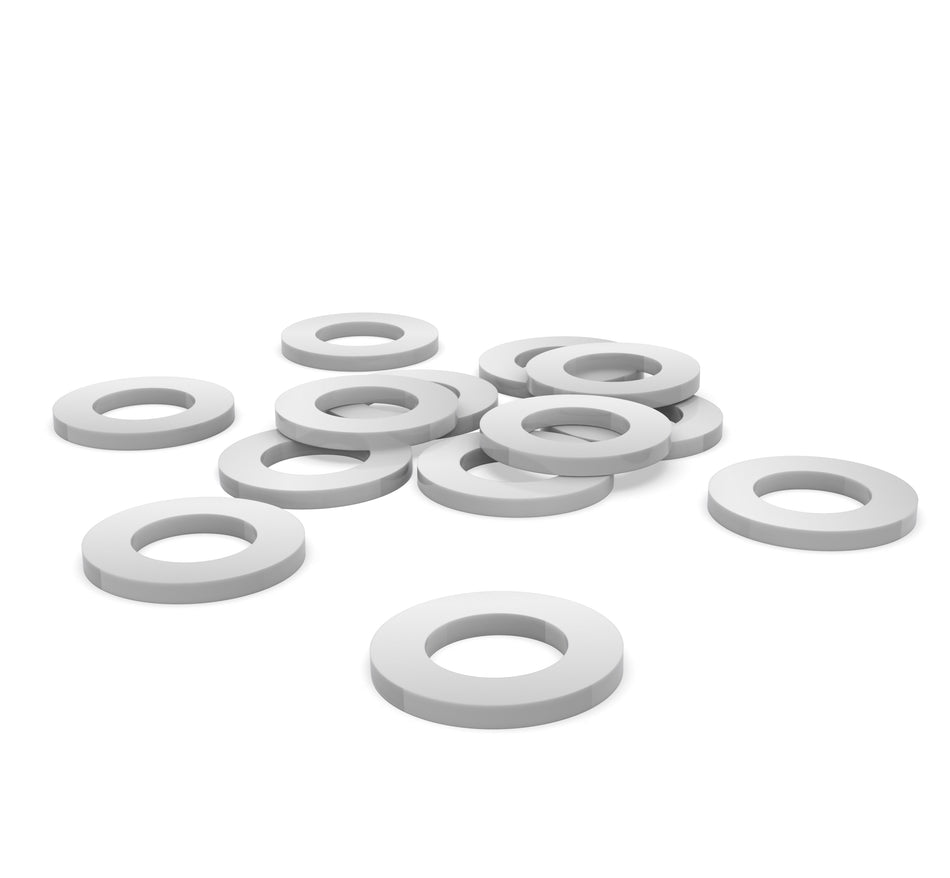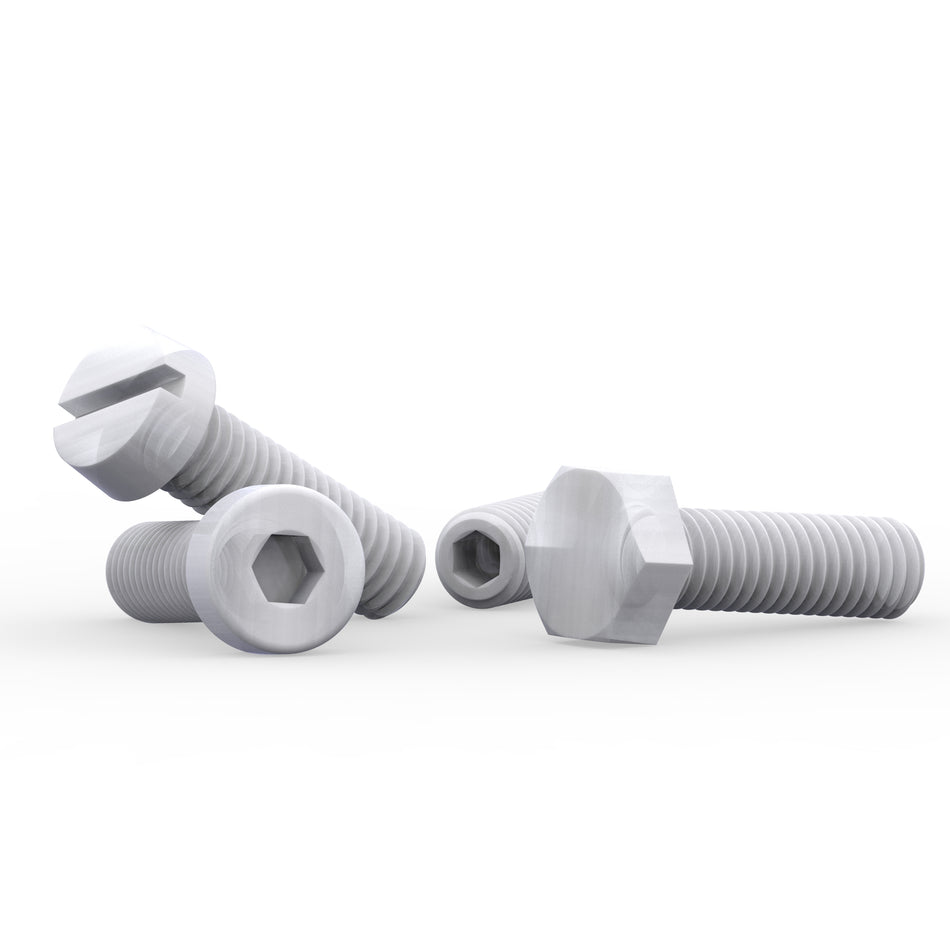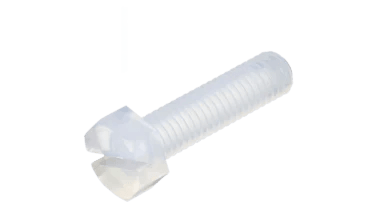9 Products
High Performance PFA Fasteners: Exploring Types, Uses, and Applications
High Performance PFA (Perfluoroalkoxy) fasteners are a class of specialized fastening components made from PFA material. PFA is a type of fluoropolymer known for its exceptional chemical resistance, thermal stability, and non-stick properties. In this comprehensive article, we will delve into the world of High Performance PFA Fasteners, focusing on types such as screws and bolts, as well as their uses and applications across various industries.
1. Introduction to High Performance PFA Fasteners:
Fasteners are essential components used to join or secure parts in mechanical assemblies. High Performance PFA Fasteners stand out due to their unique material properties, offering outstanding performance in demanding environments. PFA is a copolymer made from tetrafluoroethylene (TFE) and perfluoroalkyl vinyl ether (PFAVE), combining the benefits of PTFE (Teflon) and perfluoroalkoxy materials.
2. Types of High Performance PFA Fasteners:
a. PFA Screws:
PFA screws are threaded fasteners used to securely join two or more components together. The non-stick properties of PFA prevent materials from adhering to the screw's surface, making them ideal for applications in industries where cleanliness is crucial, such as food processing, pharmaceuticals, and semiconductor manufacturing.
b. PFA Bolts:
PFA bolts are similar to screws but are typically larger and often used with nuts to create more robust connections. High Performance PFA Bolts are known for their excellent chemical resistance and thermal stability, making them suitable for applications in corrosive environments and high-temperature conditions.
3. Benefits of High Performance PFA Fasteners:
a. Chemical Resistance: High Performance PFA Fasteners exhibit exceptional resistance to a wide range of aggressive chemicals, acids, and solvents. This property makes them valuable components in industries handling corrosive substances.
b. Thermal Stability: PFA is capable of withstanding extreme temperatures, ranging from cryogenic levels to elevated temperatures of approximately 260°C (500°F). As a result, High Performance PFA Fasteners retain their mechanical properties even in challenging thermal environments.
c. Non-Stick Properties: PFA's non-stick characteristics prevent adhesion of materials to the fastener's surface. This property reduces the risk of contamination, enhances cleanliness, and promotes smooth operation in various applications.
d. Electrical Insulation: PFA is an excellent electrical insulator, making High Performance PFA Fasteners suitable for electrical and electronic applications, where insulation and protection are essential.
e. Low Friction: High Performance PFA Fasteners offer low friction coefficients, reducing wear and improving the efficiency of moving parts in mechanical assemblies.
4. Applications of High Performance PFA Fasteners:
a. Semiconductor and Electronics: PFA fasteners are used in the semiconductor and electronics industry for their chemical resistance and non-contaminating properties. They find applications in cleanroom environments and critical equipment.
b. Chemical Processing: High Performance PFA Fasteners are utilized in chemical processing plants for valves, pumps, and fittings that handle corrosive chemicals and aggressive solvents.
c. Aerospace: PFA fasteners are suitable for aerospace applications due to their thermal stability and resistance to aviation fluids and hydraulic fluids.
d. Medical: In the medical industry, PFA fasteners are used for medical devices, surgical instruments, and equipment requiring chemical resistance and sterilization capabilities.
e. Food and Beverage: High Performance PFA Fasteners are employed in food processing and beverage industries for their non-stick properties, which prevent food residue build-up and ensure cleanliness.
f. Automotive: PFA fasteners are used in automotive applications, such as fuel system components and critical parts requiring chemical and thermal resistance.
5. Other Uses of High Performance PFA Fasteners:
a. Corrosive Environments: PFA fasteners are ideal for applications where exposure to aggressive chemicals and corrosive substances is common.
b. High-Temperature Environments: Due to their exceptional thermal stability, PFA fasteners are suitable for use in high-temperature environments, such as chemical processing and aerospace applications.
c. Non-Contaminating Applications: PFA fasteners find use in industries where cleanliness and non-contamination are crucial, such as pharmaceuticals and semiconductor manufacturing.
d. Medical Devices: PFA fasteners are utilized in medical devices and surgical instruments due to their biocompatibility and resistance to sterilization methods.
6. Considerations for Using High Performance PFA Fasteners:
a. Material Compatibility: Ensure that High Performance PFA Fasteners are compatible with the materials they will be in contact with to avoid any adverse reactions.
b. Temperature Range: Consider the temperature range the fasteners will be exposed to and choose appropriate PFA grades for the specific application.
c. Chemical Resistance: Select High Performance PFA Fasteners with the required chemical resistance properties to suit the specific environment and substances they will encounter.
d. Design Requirements: Evaluate the design requirements and mechanical loads to determine the appropriate size and strength of PFA fasteners needed for the application.
In conclusion, High Performance PFA Fasteners
High Performance PFA (Perfluoroalkoxy) fasteners are a class of specialized fastening components made from PFA material. PFA is a type of fluoropolymer known for its exceptional chemical resistance, thermal stability, and non-stick properties. In this comprehensive article, we will delve into the world of High Performance PFA Fasteners, focusing on types such as screws and bolts, as well as their uses and applications across various industries.
1. Introduction to High Performance PFA Fasteners:
Fasteners are essential components used to join or secure parts in mechanical assemblies. High Performance PFA Fasteners stand out due to their unique material properties, offering outstanding performance in demanding environments. PFA is a copolymer made from tetrafluoroethylene (TFE) and perfluoroalkyl vinyl ether (PFAVE), combining the benefits of PTFE (Teflon) and perfluoroalkoxy materials.
2. Types of High Performance PFA Fasteners:
a. PFA Screws:
PFA screws are threaded fasteners used to securely join two or more components together. The non-stick properties of PFA prevent materials from adhering to the screw's surface, making them ideal for applications in industries where cleanliness is crucial, such as food processing, pharmaceuticals, and semiconductor manufacturing.
b. PFA Bolts:
PFA bolts are similar to screws but are typically larger and often used with nuts to create more robust connections. High Performance PFA Bolts are known for their excellent chemical resistance and thermal stability, making them suitable for applications in corrosive environments and high-temperature conditions.
3. Benefits of High Performance PFA Fasteners:
a. Chemical Resistance: High Performance PFA Fasteners exhibit exceptional resistance to a wide range of aggressive chemicals, acids, and solvents. This property makes them valuable components in industries handling corrosive substances.
b. Thermal Stability: PFA is capable of withstanding extreme temperatures, ranging from cryogenic levels to elevated temperatures of approximately 260°C (500°F). As a result, High Performance PFA Fasteners retain their mechanical properties even in challenging thermal environments.
c. Non-Stick Properties: PFA's non-stick characteristics prevent adhesion of materials to the fastener's surface. This property reduces the risk of contamination, enhances cleanliness, and promotes smooth operation in various applications.
d. Electrical Insulation: PFA is an excellent electrical insulator, making High Performance PFA Fasteners suitable for electrical and electronic applications, where insulation and protection are essential.
e. Low Friction: High Performance PFA Fasteners offer low friction coefficients, reducing wear and improving the efficiency of moving parts in mechanical assemblies.
4. Applications of High Performance PFA Fasteners:
a. Semiconductor and Electronics: PFA fasteners are used in the semiconductor and electronics industry for their chemical resistance and non-contaminating properties. They find applications in cleanroom environments and critical equipment.
b. Chemical Processing: High Performance PFA Fasteners are utilized in chemical processing plants for valves, pumps, and fittings that handle corrosive chemicals and aggressive solvents.
c. Aerospace: PFA fasteners are suitable for aerospace applications due to their thermal stability and resistance to aviation fluids and hydraulic fluids.
d. Medical: In the medical industry, PFA fasteners are used for medical devices, surgical instruments, and equipment requiring chemical resistance and sterilization capabilities.
e. Food and Beverage: High Performance PFA Fasteners are employed in food processing and beverage industries for their non-stick properties, which prevent food residue build-up and ensure cleanliness.
f. Automotive: PFA fasteners are used in automotive applications, such as fuel system components and critical parts requiring chemical and thermal resistance.
5. Other Uses of High Performance PFA Fasteners:
a. Corrosive Environments: PFA fasteners are ideal for applications where exposure to aggressive chemicals and corrosive substances is common.
b. High-Temperature Environments: Due to their exceptional thermal stability, PFA fasteners are suitable for use in high-temperature environments, such as chemical processing and aerospace applications.
c. Non-Contaminating Applications: PFA fasteners find use in industries where cleanliness and non-contamination are crucial, such as pharmaceuticals and semiconductor manufacturing.
d. Medical Devices: PFA fasteners are utilized in medical devices and surgical instruments due to their biocompatibility and resistance to sterilization methods.
6. Considerations for Using High Performance PFA Fasteners:
a. Material Compatibility: Ensure that High Performance PFA Fasteners are compatible with the materials they will be in contact with to avoid any adverse reactions.
b. Temperature Range: Consider the temperature range the fasteners will be exposed to and choose appropriate PFA grades for the specific application.
c. Chemical Resistance: Select High Performance PFA Fasteners with the required chemical resistance properties to suit the specific environment and substances they will encounter.
d. Design Requirements: Evaluate the design requirements and mechanical loads to determine the appropriate size and strength of PFA fasteners needed for the application.
In conclusion, High Performance PFA Fasteners


